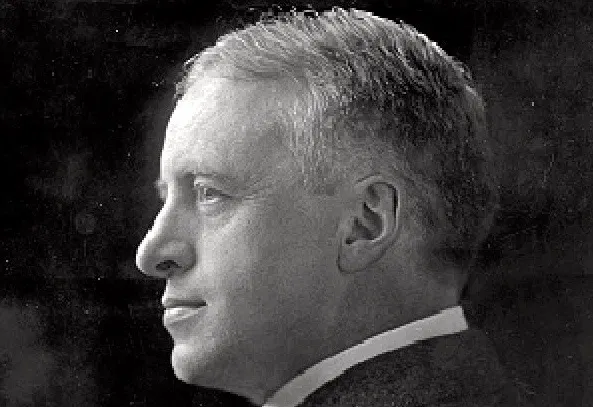
Childhood is rich with secret languages, and summer camps are particularly lush breeding grounds. The specialized babble-languages of little girls echo specifically in my own summer memories, Idig or Opish or their own original tongues, used to sort between what the Greeks in the context of dramatic irony called the eiron and the alazon. Or, those in on the joke and the suckers who aren’t, respectively. And in the jibber jabber of clutches of girls laughing together behind the bunkhouse, always just within earshot of the alazon fellow campers leaning in to pick up the code, we can discern the faint traces of a dynamic which would be mirrored years later in the vapid flux of internet argot: That ain’t it, chief. Eyes on your own paper, sweaty. Ok boomer. Or whatever new slang is passing for a shared online vernacular when you read this.
"The muting of the creative impulse and the chorus of specialized, secret technical languages which attended the silence, is the preoccupation of all of Gaddis’s fiction."
Dumb internet slang and the secret languages of pre-teen girls do the same thing. Actual communication is secondary, of course. The primary goal is to sort between in and out groups. Language is put in the service, not of urging us towards the recognition and communication of a shared reality, but of policing tribal boundaries. At its most essential, it’s a flouting of the objectivity which language, if it’s to communicate anything real or worthwhile, must abide by or else collapse into a total void of subjectivity. Taken to its ultimate extreme, it would be a secret language spoken only by one single person whose meaning is indiscernible to anyone else. It would be the language of Nimrod, chained in the outer edges of Danet’s Circle of Treachery, unintelligibly muttering “Raphèl mai amècche zabì almi.”
The Internet was ostensibly created as a kind of new Tower of Babel, a “place” where the invisible walls which block off perfect understanding of unintelligible strangers would dissipate in a frictionless digital mist. Of course, the opposite happened. New School professor Dominic Pettman calls the internet’s tendency to corral us into narrowly hyper-modulated “micro-experiences.” He writes in his book Infinite Distraction that the corporate potentates who control the internet deploy their “resources and specifically tailored protocols, to synchronize our squirrel-like attention spans. At the same time, [they are] doing something less Orwellian, but perhaps even more sinister: tweaking and modulating our increasingly homogeneous gaze into staggered or delayed micro-experiences.” This jostling and sorting goes hand in hand with the decay of a unified social language, splintered into the nefarious secret languages of professional jargon. What happens to language, and ultimately experience, on the internet mirrors the same affects which professional overspecialization has had on communication. A doctor can’t speak lawyer for much the same reason that my Twitter feed might represent a totally different world than yours. We’re comfortable in the confused cells of our bespoke worlds.
As we glean from the work of novelist William Gaddis, this over-specialized world, organized according to the dictates of automated disconnection, didn’t begin with the internet. It’s possible that the push towards fragmentation is a permanent pitfall of politics, always more or less with us in some form. But Gaddis, with his particular focus on the American experience, takes the invention of the player piano as the genesis of our contemporary social fragmentation. Each automated note being Janus-faced, communicating a musical tone and in the same movement hiding the awareness of how to make the tone hang with others inside of a composition. By playing the music for us, it makes the knowledge of how to play music ourselves into an esoteric, secret language. It turns us into consumers of music instead of creators. What the player piano makes clear is that we sacrifice self-sufficiency for living in an automated world. And the line connecting the player piano to the online micro-experience is easier to follow than a blood trail leading a hunter to his stricken quarry. In his study of Gaddis, Nobody Grew But The Business, Joseph Tabbi writes that “…technologies of control, whether they appeared in the player piano roll or its offspring, the punch cards of an IBM computer, were fast removing chance, nuance, and a certain noise and ambiguity necessary to human expression and togetherness.” It’s not by chance that Tabbi lists human expression beside togetherness. Is one possible without the other?
Gaddis, typical Capricorn, was obsessed with his family of origin, from his early Puritain ancestors to the Midwestern musicians who moved back East at the turn of last century in a sort of Western Expansion in reverse. They’d gone on to found the Ernest Williams School of Music in Brooklyn and write books such as The Inductive Note Reader and Nature in Song. But their refined contributions to popular culture (remember, back then, if you wanted to hear music on demand you had to learn to play it yourself or keep an orchestra on retainer) were still-born antiquaries. By 1903 the Pianola self-playing piano had launched what was then one of the most well-funded marketing campaigns in history, even going so far as to take out full page color advertisements in popular magazines. You didn’t need to know how to read notes, inductively or otherwise, to hear all the latest popular songs and old holiday classics. All of the discipline and study required of mastering the instrument was almost instantly rendered superfluous. The Aeolian Company was releasing 200 new player piano rolls per month, and unlike your uncle Charles, the player piano didn’t make mistakes or add annoying flourishes. Easy and homogenized.
But the price paid for convenience was the very thing which automation claimed to save the consumer from: mastery. In a piece for the The Atlantic Monthly called “The Secret History of the Player Piano: PLEASE DO NOT SHOOT THE PIANIST HE IS DOING HIS BEST,” William Gaddis wrote that the player piano represented “democracy’s claims devouring technology’s promise, banishing failure to inherent vice where in painting it remains today…” Going a step further even than Marxist mystic Benjamin with his decay of aura in the mass-produced, Gaddis saw in the false-democratization of the arts an urge towards the “useful” (the initiated might call it praxis) where art becomes anything besides art. Therapy. Product. Social justice. Sociology. Fragmented further into the technical jargon of their fields of analysis, the common language of art born from the experience of actually creating it was muzzled by modes of social control. Gaddis wrote in his essay that “The elimination of failure through programmed organization, the player emerged as a distillation of goals that had surrounded its gestation in an orgy of fragmented talents seeking after the useful…Rockefeller…Pullman…Woolworth…Morgan…Frick…Gibbs…Comstock…Freud…Dewey…a frenzied search for just those patterns of communication and control…”
The muting of the creative impulse and the chorus of specialized, secret technical languages which attended the silence, is the preoccupation of all of Gaddis’s fiction. As a character in his novel A Frolic of His Own, hewn largely from the bureaucratized babble of legalese, says, America is “not a country” so much as a cabal of professions each with a language so specific to its particular perspective that it can’t be easily translated to a common tongue. This occlusion is a byproduct of thinking itself being automated, as it were, within the technical specificity of language. An exchange between two characters in Frolic, Christina Lutz and her husband Harry, a lawyer:
- Legal language, I mean who can understand legal language but another lawyer, it’s like a, I mean it’s all a conspiracy, think about it Harry. It’s a conspiracy.
- Of course it is, I don’t have to think about it. Every profession is a conspiracy against the public, every profession protects itself within a language of its own...
What is singularly unique about Gaddis’s novels is that they expose these conspiracies by inhabiting and decoding the secret languages of professions. Describing Gaddis’s project in Nobody Grew But The Business: On the Life and Work of William Gaddis, Joseph Tabbi writes that “[t]he role of the novelist, for Gaddis, is not to displace machinations largely indifferent to humanism with dramas that every reader can grasp; nor is it desirable to clear up too readily or explain linguistic complexities, but rather to inhabit them fully and to bring the human into contact with processes and technical languages that determine our situation, that shape our state, our corporate systems, and our cultures.” With his first novel, The Recognitions, it was the language of theology that was utilized. Geology and public relations in Carpenter’s Gothic. The law in A Frolic of His Own. And for his crowning achievement, 1975’s JR, Gaddis inhabited and exposed the language of business. The only big game left standing, it seemed, were politics and psychology. Critical race and gender theory hadn’t been invented yet.
JR, which won the 1976 National Book Award, has an unearned reputation for opacity. In truth, like much of the Modernist fiction which Gaddis drew intellectual inspiration from, the novel teaches you how to read it. Modernism always moves in two directions at once, whispering the secret language while at the same time offering a path of initiation through deep engagement. It requires the sort of attentiveness, in fact, which the automation of the arts resists. In the case of JR, the plot is simple: an eleven-year-old boy named J R Vansant creates a financial fortune (at least on paper) by manipulating penny stocks at a distance via payphone and money order. The book’s reputation for difficulty comes from it being written completely in dialogue, often with little indication as to who is speaking except through context and idiosyncrasies of diction. For instance, in a snippet which explains the very processes the novel itself is modeling:
Before we go any further here, has it ever occurred to any of you that all this is simply one grand misunderstanding? Since you're not here to learn anything, but to be taught so you can pass these tests, knowledge has to be organized so it can be taught, and it has to be reduced to information so it can be organized; do you follow that? In other words, this leads you to assume that organization is an inherent property of the knowledge itself, and that disorder and chaos are simply irrelevant forces that threaten it from outside. In fact it's exactly the opposite. Order is simply a thin, perilous condition we try to impose on the basic reality of chaos...
A plot can be discerned within the cacophony of voices, but engaging with it isn’t necessary for understanding Gaddis’s larger point, which is embedded in the form of the book itself. JR makes itself into an artifact of what it’s about. Tabbi is worth quoting again here, at length:
The intrapersonal communication, which in JR is indeed people talking mostly past one another, is by no means the only communication at work in the novel and, indeed, in the present multimediated world in which we actually do live and take cognizance of one another. Going beyond the humanist, humanizing imagination, Gaddis shows what it can be to write realistically in the current wold-spanning, media-dominated age. Systems nowadays rarely conform to what we can say about them, whether we are speaking person-to-person or over broadcast and reception media; that is, they rarely conform to our intuitive understanding, shaped as such understanding has been by causal, classical mechanics (of the Newtonian theory) and by managed economies and official national languages. Similarly, the modern novel, which emerged out of these same nationalist programs and mechanistic paradigms, has evolved various nonintuitive, antirepresentational stances.
Tabbi’s use of the word “humanism” recalls another writer, one not typically paired with William Gaddis: Frencesco Petrarca, commonly known as Petrarch. If Gaddis uses his fiction to mirror and satirize a world where language systems have automated thinking and being in ways often hidden to us, Petrarch, the father of Renaissance humanism, was an equal critic of the secret languages of his own society, which he saw as doing much the same thing. But where Gaddis inhabits the secret language and emphasizes its damaging effects, Petrarch was more often an advocate for a unifying and sagacious eloquence. James Hankins, probably the foremost American scholar on Renaissance political thought, describes the goals of Petrarch and his cohort as:
…[aspiring] to build political communities led by educated people, and the leaders of those communities ought to be able to address their fellow citizens as equals in council, using lucid arguments. They should not take refuge in legal mysteries understood only by specialists...The humanist idol Cicero had been able to advocate courses of action to his fellow citizens in their common speech, however artfully arranged, while the legal profession, even in antiquity, preferred to wrap itself in a jargon only understood by itself…
It wasn’t just the legal profession which Petrarch responded to, but the decayed version of scholasticism rampant in quattrocento universities. The “subhuman argot” of scholastic jargon, as Hankins calls it, uttered like the Opish of summer camp kids, was put then towards the same ends that it’s put now. Baffling clarity of thought. Creating cabals of agreement. Automating perception and avoiding the inevitable mistake which always attends authentic thinking. Petrarch in his day advocated for eloquence. It wasn’t enough to say something which carried the weight of logic. Speech must also persuade with beauty. And of course it wasn’t enough to be beautiful, but it must also resonate with rationality. Whereas the jargon of professions, and the language of ideology in general, always tends towards something like a curse or magic spell, full of hidden meaning but when uttered affects immediate change in the physical world, Petrarch advocated for the wisdom of speech as art. A living thing resonating in the hearts of his fellow citizens because it was also crafted within the chambers of his own. Academic jargon is the linguistic equivalent of the player piano. Humanist eloquence is a piece performed by human hands.
The player piano itself was just a doomed creature, and a victim of the historical process by which it came into existence. Its lifespan was relatively short, only a couple decades in all. It would go on to be replaced by the radio and the gramophone, themselves succeeded by television, tapes, CDs, computers, etc. Nothing grew but the business. Gaddis’s final book, Agapē Agape, was his most autobiographical. It was about a dying old man who always meant to write a vast history of the secret role of the player piano in the automation of the arts but never quite got around to actually doing it. Sound familiar? The title alone reveals a wry sense of what Gaddis was after his entire career. His entire life. Agapē is a form of love, broader and more profound than the sorts of love reserved for family or sexual partners. Gaddis defined it as “that natural merging of created life in this creation in love that transcends it, a celebration of the love that created it.” The description seems to invoke God. It might. But what it most certainly references for Gaddis is the love reserved for the things which we create ourselves out of the materials of our lives. Art, in other words. The loss of such a love, gently murdered by automation, is concealed by a conspiracy of language. Art and eloquence, nearly synonymous, are victims of the same crime.

